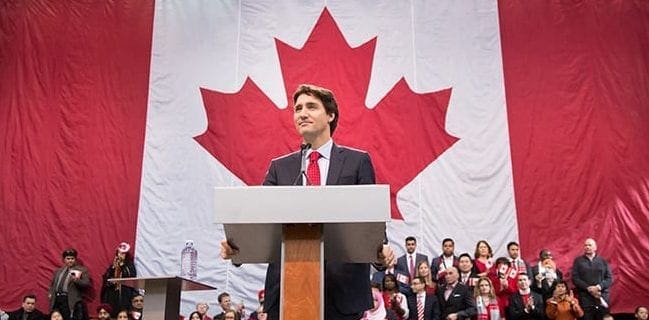 Most people – most normal people, anyway – pay little or no attention to politics.
Most people – most normal people, anyway – pay little or no attention to politics.
They’re Joe and Jane Frontporch, and they’re busy. Ferrying the kids to and from hockey practice, getting stuck in traffic, worrying about paying the mortgage or the rent, trying to catch up on their sleep. Busy.
They don’t have time for voluminous political party platforms or sitting through ministerial speeches or reading departmental press releases. In the digital era, they’re overwhelmed by too much information – what U.S. writer David Shenk calls “data smog” – so they just tune it all out.
That’s why the politicians who attract the most attention are the Donald Trump and Rob Ford types – guys so outrageous, they break through the data smog and capture everyone’s attention. But smoking crack or making racist statements – while indisputably newsworthy – isn’t always the best way to win elections.
So politicians and politicos instead devote most of their waking hours to dreaming up ways to pierce the smog and capture the attention of voters. They concoct ways to simplify what they’re doing, or what they want to do. Thus, back in 1992, Bill Clinton was all about the economy, stupid. At any point in his 40-year career, Jean Chretien was the unity guy – vive le Canada! And in 2008, Barack Obama represented “real change.”
Justin Trudeau’s Liberals liked Obama’s 2008 slogan so much that they stole it in 2015. “Real change” was their mantra, repeated over and over, until it became their brand.
In the early days of the new Grit government, real change is taking place, to be sure – in fiscal policy, on law and order issues, on the refugee file. No question, it’s a real change from what preceded it.
But something else is happening, too. And it’s this: Justin Trudeau’s government is the TV Government.
TV is pictures, and pictures are power. More than any prime minister in our lifetime, Trudeau seems to understand that they best way to captivate Canadians – the best way to pierce the data smog – is to be all about pictures.
So, there he was, greeting Syrian refugees at Toronto’s airport in the middle of the night. Or sitting on the steps of Parliament, talking to a school kid having a bad day. Or posing for Vogue magazine or taking a Maclean’s magazine pop quiz. Or taking a bunch of hospitalized kids to see Star Wars. Or – day after day after day – cheerfully posing for selfies with average folks.
Some people are not impressed. Interim Conservative leader Rona Ambrose sniffed: “While on the international stage, we saw leaders of the western world come together, coalescing around the fight against ISIS, the impression that was left with Canadians and the international community was that our prime minister was consumed with taking selfies,” Ambrose said, hastening to add: “I mention this because it was mentioned to me many times by constituents.”
She added that last bit, of course, because she knows it’s working. Trudeau does, too. Asked about the selfies at town hall event run by Maclean’s, Trudeau verbally shrugged. “It’s not about image, it’s about substance,” he said. “You have to get to know people.”
Of course. For sure. But it’s more than that. Trudeau was pretty young when his dad rubbed shoulders with U.S. President Ronald Reagan, 30-odd years ago. But even a little kid could understand that Reagan was much more preoccupied with images than words.
One of Reagan’s most influential advisers, Michael Deaver, didn’t hide it. “I have always believed that impressions are more important than specific acts or issues . . . I believe TV is a great boon to us in judging our leaders. It lets us see all the dimensions that, in the past, people could only see in person: the body language, the dilation of the eye, the way they perspire. We see them when they are tired, worried, under great crises. If television focuses on somebody every day, it shows all the dimensions.”
So too Justin Trudeau, whom the camera loves and – to his critics – loves the camera right back. Trudeau knows, perhaps, that leaders are measured by the impressions they create, not the policies they promulgate.
There’s a risk in all of this, naturally. If, six months from now, Trudeau is branded as Prime Minister Selfie – if his administration is simply regarded as a four-year-long photo op, punctuated only by state dinners and the occasional foreign trip – he’ll be in trouble. He needs to be more than the callow and shallow caricature his opponents suggest he is.
But if his visuals strategy works – and it’s working so far – he’s golden. He can end up in 2023 as Reagan did: beloved by his partisans, and remembered as the great communicator by all.
So far, so good. But it can all end pretty swiftly, if Joe and Jane Frontporch sense that you’re all sizzle, and no steak.
Warren Kinsella is a Canadian journalist, political adviser and commentator.
The views, opinions and positions expressed by columnists and contributors are the author’s alone. They do not inherently or expressly reflect the views, opinions and/or positions of our publication.


